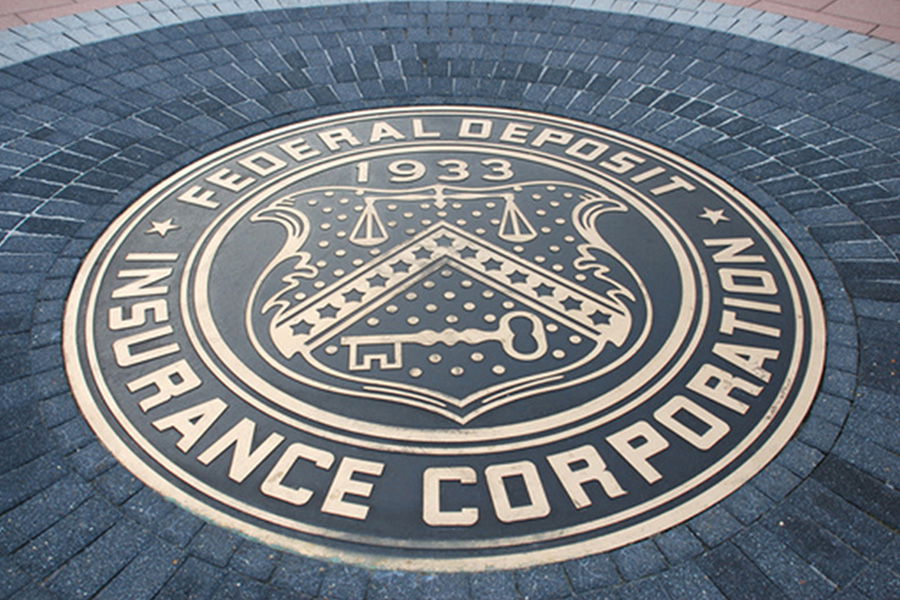FDIC insurance is a cornerstone of the banking industry, providing a sense of security for depositors in the unfortunate event of a bank failure. But, what exactly is FDIC insurance, and how does it work?

Let’s explore the ins and outs of FDIC insurance and how it can safeguard your hard-earned cash. From grasping the coverage it provides, to being aware of what’s not covered, we break down the information to help you feel secure about your savings.
Whether you’re a beginner depositor or a seasoned saver, it’s imperative to understand FDIC insurance and its potential to benefit you.
What is an FDIC insured account?
An FDIC insured account is a type of deposit account that is protected by the Federal Deposit Insurance Corporation (FDIC). This government-backed insurance program provides depositors with financial security by covering their deposits if a bank fails.
To be eligible for FDIC deposit insurance, accounts must be in a bank that is FDIC-insured, and the depositor’s funds must not exceed the FDIC insurance limit. By choosing an FDIC insured account, you can have peace of mind knowing that your money is protected, up to the legal limit, against the risk of bank failure.
How FDIC Insurance Works
The FDIC is the primary agency responsible for providing insurance coverage to depositors in the event of a bank failure. If a bank that holds your FDIC insured account fails, the FDIC steps in to repay a portion of your deposit, up to the legal insurance limit.
This limit is currently set at $250,000 per depositor, per insured bank, for each account ownership category. The FDIC uses funds from the deposit insurance fund to repay depositors, which is maintained through assessments on insured financial institutions.
To receive insurance coverage, ensure that your account is in a bank that is FDIC-insured, and to familiarize yourself with the FDIC insurance limits.
Types of FDIC Insured Accounts
Here are the different types of accounts that FDIC insures:
- Checking accounts: A checking account let you handle daily financial transactions with ease. Whether you’re writing checks, paying bills, or accessing your funds through ATMs or debit cards, a checking account with FDIC coverage offers peace of mind for your cash, insured up to the legal limit.
- Savings accounts: Short-term savings goals, rainy day funds, and earning a bit of interest – a savings account offers all this and more. Though the interest rates may be lower compared to other options, you can be assured that your deposits are secure at an FDIC-insured bank.
- Money market deposit accounts: Higher interest rates, with restrictions. That’s the deal with a money market account. To enjoy the benefits of these accounts, you usually need to make a higher initial deposit and observe certain transaction limits. But with FDIC coverage, you can sleep soundly knowing your savings are protected.
- Certificates of deposit (CDs): For those who can afford to lock up their money for a set period of time, a CD offers a tantalizing option with their fixed interest rates. However, you won’t be able to access your funds until the CD matures. Nevertheless, you can feel confident about your FDIC-insured deposits.
Money orders, cashier’s checks, loan disbursement checks, and other bank-issued items are also FDIC-insured.
Types of Accounts Not Covered by FDIC Insurance
While FDIC deposit insurance offers a comforting blanket of protection for your deposits, you should be aware that not all accounts are eligible for coverage. Here are a few key account types that fall outside the scope of FDIC insurance:
- Investment vehicles: investment accounts, such as stocks, bonds, mutual funds, and annuities, are not covered by the FDIC. These are considered investments, not deposits, and thus, not eligible for protection.
- Business-related accounts: If you’re running a business, it’s crucial to understand that corporate accounts and accounts held by partnerships are typically not covered by the FDIC.
- Banking abroad: If you have deposits in foreign banks, be aware that they are not eligible for FDIC insurance. So, if you’re looking to keep your money secure while banking internationally, consider other options.
- Crypto assets: The FDIC does not insure cryptocurrencies since they are not considered traditional banking products.
- Life insurance policies: Life insurance policies are not considered deposits, so they are not eligible for FDIC protection.
- Safe deposit boxes or their contents: The contents of safe deposit boxes are not insured by the FDIC. It’s important to consider other options for storing valuables if you want to ensure their protection.
How much does FDIC insurance cover?
For most deposit accounts, including checking, savings, and money market accounts, FDIC insurance coverage is capped at a generous $250,000 per depositor, per insured bank, for each account ownership category.
However, if you have multiple accounts at the same insured bank, the coverage may be aggregated. So, even if you have multiple accounts, the total coverage for all your accounts combined is still limited to $250,000.
On the bright side, there are higher coverage limits available for specific types of accounts, such as retirement accounts and trust accounts. Remember to regularly review your accounts and their coverage levels, and consider splitting large deposits across multiple insured banks if needed.
Bottom Line
In conclusion, it’s always a good idea to be proactive when it comes to your finances, and understanding your FDIC coverage is a key part of this. Don’t wait until it’s too late to find out that your deposits aren’t insured. Stay informed and make sure your money is always protected.
Frequently Asked Questions
How much does the FDIC insure?
The FDIC’s standard insurance coverage limit is $250,000 per depositor and account type, for each financial institution. This means that if you hold deposits at multiple FDIC-insured banks, the insurance protection will apply separately to each bank.
What banks are insured by the FDIC?
The FDIC provides insurance coverage for deposits made at banks and savings associations that are members of the organization. Want to make sure your bank is covered? You can easily check by utilizing the FDIC’s online “Bank Find” tool or by giving them a call.
Are credit unions FDIC insured?
Credit unions are not insured by the Federal Deposit Insurance Corporation (FDIC). Instead, they are insured by the National Credit Union Administration (NCUA). The NCUA provides the same level of protection as the FDIC, ensuring that accounts held at credit unions are just as safe and secure.



